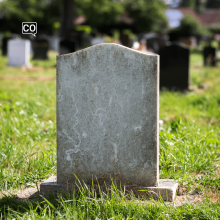Morir (to die) - Futuro perfecto, indicativo (Future Perfect, indicative) - Spanish

Morir - Conjugation of to die in Spanish: Conjugation table, examples and exercises in the future perfect, indicative tense (Futuro perfecto, indicativo).
Futuro perfecto, indicativo (Future Perfect, indicative)
All conjugations and tenses: Morir (to die) - conjugation and tenses - (Spanish)
Syllabus: Spanish lesson - Infancia y recuerdos (Childhood and memories)
Conjugation of to die in Futuro perfecto
- yo habré muerto I will have died
- tú habrás muerto You will have died
- él/ella habrá muerto he will have died
- nosotros/nosotras habremos muerto We will have died
- vosotros/vosotras habréis muerto You will have died
- ellos/ellas habrán muerto They will have died
Example phrases
- Habré muerto de risa cuando volvamos a ver la película. I will have died of laughter when we watch the movie again.
- Habrás muerto de cansancio después de caminar por el bosque. You will have died of exhaustion after walking through the forest.
- Habrá muerto de frío si no se pone la ropa interior adecuada en la montaña. He will have died of cold if he doesn't wear the appropriate underwear on the mountain.
- Habremos muerto de hambre si no descubrimos un restaurante pronto. We will have died of hunger if we do not discover a restaurant soon.
- Habréis muerto de aburrimiento si no encuentran algo interesante en la oficina de turismo. You will have died of boredom if they don't find something interesting at the tourist office.
- Habrán muerto de miedo después de enterarse del problema en el camping. They will have died of fear after finding out about the problem at the campsite.
Exercise: Conjugate the verbs - morir (to die)
Instruction: Choose the correct word, read the sentence out loud and translate.
Show answers Show translationMorir (Futuro perfecto, indicativo)
1. ... de risa cuando volvamos a ver la película.
2. ... de cansancio después de caminar por el bosque.
3. ... de miedo después de enterarse del problema en el camping.
4. ... de frío si no se pone la ropa interior adecuada en la montaña.
5. ... de hambre si no descubrimos un restaurante pronto.
6. ... de aburrimiento si no encuentran algo interesante en la oficina de turismo.